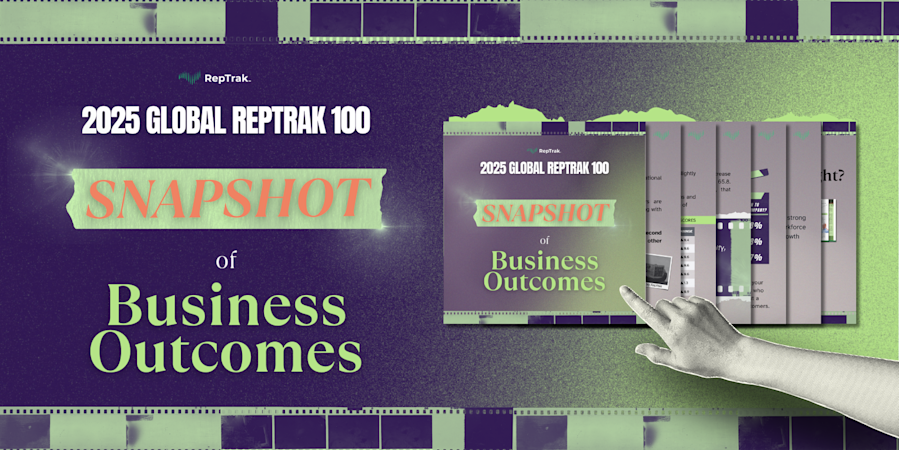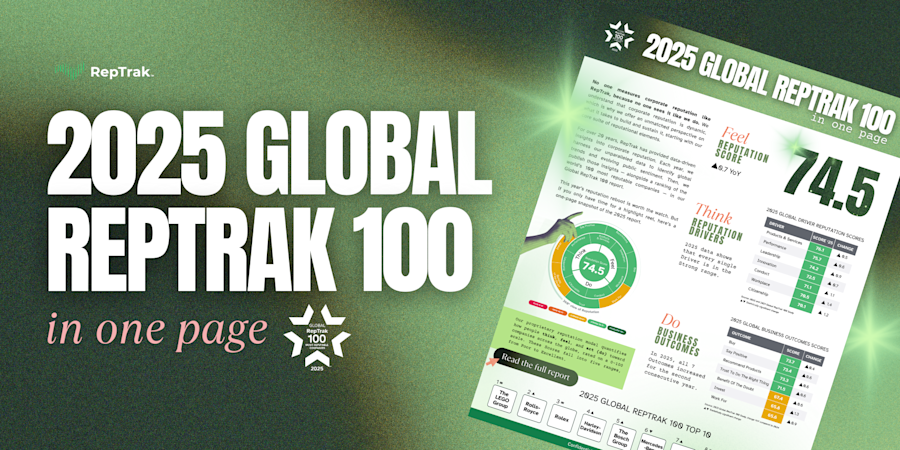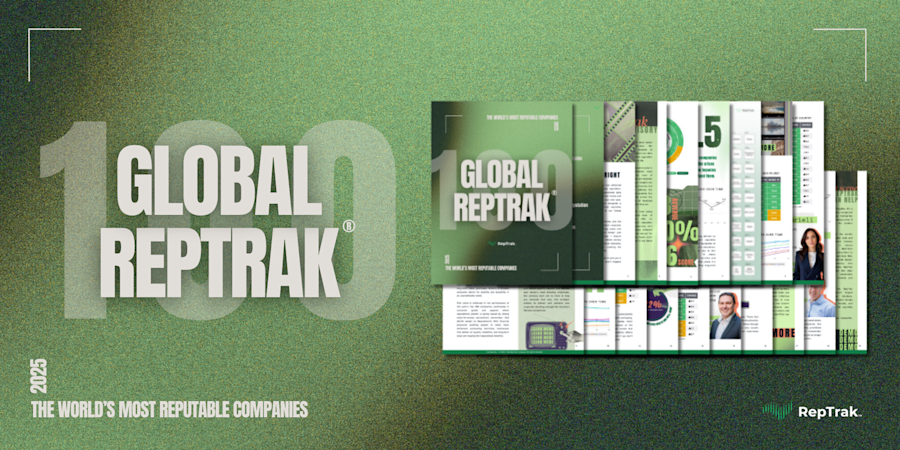Communicating During a Crisis: How Toyota Motor in Italy Responded to COVID-19
Case Study23 Mar, 2020
No one can predict a crisis situation. The best any organization can hope for is that they are prepared when one strikes.
Such was the case at Toyota Motor in Italy, which had systems and processes in place for dealing with a crisis before COVID-19 started to affect residents in that country significantly. As a result, Toyota’s swift response, and the company’s continuing efforts to communicate with employees and customers, has been a model for other companies to learn from. Toyota’s actions illustrate why, in our recent survey of Italian consumers in early March, perceptions of companies are more favorable than those of the government right now.
We reached out to Sabrina Caputi, Corporate Communications & External Affairs Senior Manager at Toyota Motor Italia, to learn more about the company’s communications strategy during this pandemic. Sabrina has been with Toyota since 1999, and has worked in multiple departments within the company, including Human Resources.
Here is what she told us.
The RepTrak Company: How prepared was Toyota to deal with the COVID-19 situation?
Sabrina Caputi: In times of crisis, it is necessary to be agile and timely. Just on Monday, February 24—a few hours from the outbreaks in some municipalities in Lombardy—the Toyota Group companies stopped field-staff travel. Just 70 people continued to work from the office. This reduced the risk of contagion, considering that part of these people’s jobs included travelling to the northern regions of Italy.
Today, 100% of people at Toyota Motor Italia, and the other companies within the Toyota Group in Italy, are doing “smart working” and working remotely. We have been able to do this because we planned for it. Last year, we started a project to transform our organization and adopt a more digital and agile way of working. We spent a lot of time training people before this period, because it was not our habit to do smart working. We also did some stress tests inside the organization. For two weeks in February, around 60% of our employees started smart working. Then our IT team made an analysis immediately after the stress test, so that when 100% of our team began smart working almost two weeks ago, we were able to maintain continuity in our business activities.
This is one of the best practices: When you plan and you prepare people for change ... then, when real change happens, you can be more efficient without disrupting your business continuity.
The RepTrak Company: When the situation started to get worse, how was the decision to act made so quickly? What was the process?
Sabrina Caputi: Every action we decided to take has been decided by a crisis committee, composed mainly of our top management, the Legal department, Human Resources, Sales & Marketing, Communication & External Affairs, and the CEOs of the other companies within the Toyota Group in Italy—i.e., Toyota Financial Services, Toyota Insurance, and Toyota Fleet Mobility. This crisis committee meets as frequently as necessary depending on the emergency level and at least one day a week. They discuss the facts and take action after every meeting.
The RepTrak Company: Now that your employees are completely remote, how have you been communicating with them?
Sabrina Caputi: We give a continuous stream of information to employees, updating them about the situation day by day, particularly concerning the government provisions for emergency and the actions we are taking. In addition, after the decision to have all employees start smart working our Managing Director sent an email to all of us, to let us know that, of course, the situation is very serious and difficult, but we are taking care of you.
I think this is also really very important: sensitivity and closeness beyond business needs.
The RepTrak Company: According to our recent survey about the early response to the crisis, Italian consumers’ perceptions of companies are more favorable than those of the government. Given that, what is the call-to-action opportunity for companies in other countries?
Sabrina Caputi: I think the social sphere has a really big impact on the emotional bond toward a company. People want to know what companies are doing, in a very practical way, to support society and their institutions in overcoming this very particular period. So, to share some examples, Armani, Bulgari, and Esselunga (a famous supermarket chain) were among the organizations that have made donations to support hospitals. And this has a very big impact on how people perceive these companies.
As far as Toyota is concerned, I can tell you that we have already activated in providing support to the institutions and public organizations called to manage the emergency. Actually, this is in Toyota’s DNA: We want to run our business having a positive impact on society. It is embedded in Toyota’s long-term vision that we aspire to create a society without barriers or limits, in which each person has the freedom to move and can live in harmony with the environment and society. The practical realization of all this consists in Toyota’s guaranteed investment for over 20 years in the progressive electrification of the traction systems, aimed at sustainable mobility.
The RepTrak Company: It sounds like Toyota Italia had a very organized approach to responding to the crisis. What would you say is the number one thing you're most proud of in regards to the way Toyota has handled it?
Sabrina Caputi: In our organization, teamwork is really very key. So, first of all, I will say that having high levels of coordination among all the various functions inside the company was critical. And this includes the entire European organization of Toyota. Once a week, we have an alignment meeting via Skype with teams in all the other European countries, and another one internally in our Italian organization (the crisis committee). We discuss the situation and share what possible actions and countermeasures we can take.
The other thing is the focus on our people. People are key for a company’s success. Their health and safety is the first and most important thing. And that includes our customers, too. This week, we published a press release—and of course we also put this on our website—informing all of our customers about what the state of our dealer network is in terms of opening the showrooms and offering service. We think that communicating to people continuously, whether they are employees or customers, is really very important.
Furthermore, Toyota has not stopped any activities, not even training! Toyota Academy Italy, our training department, developed a massive online trainings for all employees, including, for example:
targeted training activities for the field, Toyota, and Lexus teams
a training course on crisis management for department heads, senior managers, and team managers
product webinar on Toyota DNA (Motor Sport and Off Road), on NG Yaris and on the competitive scenario for electrified products (Full Hybrid Toyota / Lexus vs. competitive technologies) for all employees
webinar to present the new projects of the Toyota Academy (New Training and Recruitment Project for Dealers) for the Field, Toyota and Lexus teams
e-learning and assessments launched for several days on GDPR and SPEEXX (the new platform to improve your English) for all employees
follow-up training measures as a result of our survey on Digital Workplace tools
The RepTrak Company: How easy has it been to maintain a sense of community among your employees during this pandemic?
Sabrina Caputi: In order to maintain contact among our people, we are constantly communicating updates about government provisions for emergencies, and actions we are going to take as Toyota, through our company intranet (called “InTouch”). But we are also stimulating contact among employees through the use of an internal social network. We started some social initiatives with our employees—and this includes our warehouse employees—like, for example, home fitness courses. We are really trying to involve all employees in company life through the social network.
Of course, what we have learned is that in this emergency context, it is not that easy to work remotely, especially from the aspect of social relations. When you’re in the office, you can have “informal meetings” over a freshly brewed coffee or at lunch. These informal meetings in the organization are very important.
That said, we have learned how evolving into a new, more agile and more digitized way of working leads to greater operational efficiencies. This is not something that happens overnight. But in our opinion, planning for change is the winning element. We have planned for this since last year, when we started our Digital Workplace project, which is guiding our organization toward a new way of using digital tools and working spaces.
The RepTrak Company: Finally, aside from simply helping people in need, why are these efforts so important?
Sabrina Caputi: We want people to know that they are important to us. It is not only a matter of running the business, but motivating and taking care of people, so they can act in every context as ambassadors of our company. Toyota invests on its people in different ways, including training and development, health and safety. With regards to the coronavirus emergency, for example, we have taken out until the end of this year an insurance policy for all of Toyota Motor Italia’s employees, in the event of a COVID-19 infection. Its coverage is to be considered additional to any guarantees provided by the already active health policies. We have also activated the protection of all Toyota people employed in Italy through our Dealer Network with different measures, receiving great appreciation. We celebrate our successes with them and are close to them in times of difficulty, thanks to a dialogue and constant discussion. This is the sense of partnership for us.
This is important because, if people trust the company and they are 100% satisfied with Toyota as an employer or a partner, then they will be ambassadors for it.
Toyota philosophy places the customer first. And employees represent an extremely relevant corporate asset. But of course, the customers who buy our cars and the technology they incorporate, and our Dealer Network are important, as well. Together with our dealers we are trying to create a real community, because the dealers are an integral part of our value chain and the reference point for mobility in the local communities in which they operate.
The point is, we are actively communicating that we are there for people—even if our showrooms and our offices are physically closed at the moment, we are still maintaining activity and we are able to help and support our employees and our customers if they need us.
If you’re interested in sharing your company’s COVID-19 response story, please let us know.
Dino Damiano Borello Vice President, FMCG – Client Services The RepTrak Company – Italy [email protected]





